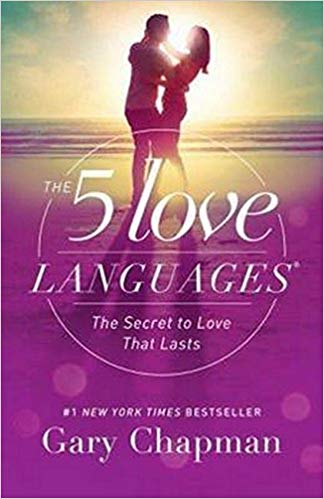

This article is an excerpt from the Shortform summary of "The 5 Love Languages" by Gary Chapman. Shortform has the world's best summaries of books you should be reading.
Like this article? Sign up for a free trial here .
Ever wondered why your partner’s thoughtful gestures sometimes miss the mark? The key to identifying your love language—the way you give and receive love most naturally—is to reflect on three things: what makes you feel most loved, what makes you feel hurt or unloved, and how you typically show affection to others.
In The 5 Love Languages, Gary Chapman developed the concept of five love languages: Words of Affirmation, Quality Time, Receiving Gifts, Acts of Service, and Physical Touch. Here’s how to discover which one speaks to you.
Originally Published: September 6, 2019
Last Updated: December 11, 2025
How to Identify Your Love Language
Determining your love language isn’t always easy. Chapman provides a few clues that might help you understand your language better.
Think about what you desire most from your partner or the ways in which you feel most loved. Often, what you tend to want the most reflects the way you believe love is best expressed.
- Are you always vying for compliments? Do you like to hug or hold hands more than anything else? Do you wish your partner would help out more around the house? Do you long for a date night?
Think about what makes you feel hurt or unloved. The ways in which you feel dejected or rejected can speak to the ways in which you want to be loved.
- Do you feel crushed if your partner insults you? Do you resent the amount of time your partner spends at work? Does it bother you when your partner leaves without kissing you goodbye? Does receiving a generic gift leave you feeling empty?
Think about how you show love to your partner. The ways in which you make an effort to show love also speaks to how you feel love is best communicated.
- Do you often do little things to make your partner’s day better? Do you find ways to touch your partner to show you care? Do you frequently tell your partner how wonderful they are? Do you like to surprise your partner with small tokens of love?
Identifying Your Partner’s Love Language
While discovering your own language can be tricky, figuring out which language your partner speaks can be even harder. Thinking about how your partner shows love can help you understand their language, says Chapman. What do they ask for the most? What do they frequently complain about? What do they do most often to show you love?
To identify your partner’s love language, consider speaking in one language for a whole week, then a different language the next week, and so on for five weeks to see how your partner reacts. The bigger the reaction one particular week, the more likely they speak that language.
| Assessing Love Languages In addition to answering the questions Chapman asks, you can also use the online quiz on the 5 Love Languages website to help you identify your love language. However, experts note some flaws in the test—it relies on a zero-sum assessment of all five languages, meaning you can’t rank them in order of importance. This means you can’t use the test to measure your affinity for each individual love language, but can instead only identify your “most preferred.” This becomes especially problematic in light of additional research that suggests that people can generally communicate and receive love through all five languages, and that preference may depend more on context than on inherent personality traits. You may find it more beneficial, then, to use the questions outlined in Chapman’s book, but to add context markers to your answers. For example, when thinking about what makes you feel most loved, consider when those actions are most effective: Maybe you prefer hugs when you’re stressed, but you prefer words of affirmation when you need motivation. In assessing what makes you feel unloved, maybe it only bothers you for your partner to leave without kissing you goodbye when you have a lot of work to do, and perhaps generic gifts only bother you on holidays and birthdays. In assessing how you show love to your partner, maybe you feel more inclined to perform acts of service when you have free time on the weekends. Additionally, as you assess your partner’s love language, consider how love languages might look different for people depending on their neurological makeup. Neurodivergent people may express and receive love differently from how neurotypical people do. For example, quality time for someone with ADHD might involve parallel play, where both partners engage in their own activities near each other but without needing to directly interact. They may also enjoy deep pressure in physical touch rather than gentle caresses. Understanding how your partner’s brain works can help you understand how to love them even better. |
Barriers to Finding Your Love Language
Sometimes it’s hard to figure out your love language—and there are a few common reasons why.
If you’ve been happy and “running on a full tank” for a long time, you might not be able to pinpoint why. Your partner has consistently made you feel loved, so no single moment stands out.
On the other hand, if your love tank has been empty for a while, you may not know what would actually make you feel loved. When you’re longing for affection in many different ways, it can be tough to remember what filled your tank the last time you felt truly cared for.
It can help to look back on the early days of your relationship. Think about the moments that made your heart feel warm when you were first falling in love—those memories often reveal what you value most.
For example:
- If you miss the way your partner used to casually put an arm around you, physical touch might be especially meaningful.
- If you smile thinking about your old park picnics, you may be craving more quality time.
It can also help to remember when you first felt love begin to fade. If you stopped feeling attractive because the compliments disappeared, chances are your tank would refill quickly if you heard those affirmations again.
Imagining your ideal relationship is another helpful lens. In a perfect world, do you picture yourselves traveling, hiking, cooking together, watching your partner tuck in the kids, or simply holding each other at night? Whatever scene feels most fulfilling points toward the type of love you naturally desire.
A simple practical exercise: list the five love languages in the order you think they matter to you. Have your partner do the same. You might be surprised by what you each discover.
Another powerful habit is regularly checking in on each other’s love tanks. A few nights a week, ask: “On a scale of 1–10, where’s your love tank today?” Then ask what small action could raise it that evening.
Not only does this reveal what you each need, but it also nudges both of you toward consistently expressing love in ways that actually land.
Over time, you may hear many small requests—but the ones that repeat most often usually point to your true love languages.
Inappropriate Use of Love Languages
Once you’ve identified your love language and your partner’s, it’s important to use them with care. Understanding your partner’s love language is a powerful tool If you use that knowledge to get your way, punish them, or benefit at their expense, it’s no longer love—it’s manipulation.
For example:
- Giving a Words of Affirmation partner compliments just to butter them up is manipulative.
- Saying your partner is “better with money” so you don’t have to handle finances serves you, not them.
- Withholding affection from a Physical Touch partner as punishment is hurtful and damaging.
- Doing only your laundry when your partner values Acts of Service communicates a lack of care.
- Buying a thoughtless airport trinket for a Receiving Gifts partner drains their tank rather than filling it.
Misusing love languages isn’t only about intentional manipulation. Ignoring your partner’s love language—even once you know it—communicates that you don’t care enough to love them in the way they need.
If your goal is to love your partner well, your actions should reflect that intention. Once you’ve discovered your love language you can take real steps toward keeping both your tank and your partner’s tank full.
FAQ: How to Identify Your Love Language
1. How can I figure out my love language?
Pay attention to what you want most from your partner—more compliments, more physical affection, more quality time, more help, or more thoughtful gestures. Your strongest desires usually reveal your primary love language.
2. Can my negative reactions show me my love language?
Yes. Notice what makes you feel hurt or unloved. Feeling ignored, insulted, or overlooked in specific ways often points to the love language you value most.
3. How do I tell which love language my partner speaks?
Look at how they show love, what they ask for, and what they complain about. You can also try focusing on one love language per week for five weeks and see which week your partner reacts most positively to.
4. Should I take the official 5 Love Languages quiz?
It can help, but it only identifies your top language and doesn’t show how much you value the others. Many people respond to different languages depending on the situation, so reflecting on your own experiences may give a more accurate picture.
5. What if I’m still unsure of my love language?
Try simple exercises: reflect on what filled your “love tank” early in your relationship, imagine your ideal partnership, rank the five languages, or check in with your partner using a nightly 1–10 love-tank rating. Patterns in these reflections usually reveal what matters most.
———End of Preview———

Like what you just read? Read the rest of the world's best summary of "The 5 Love Languages" at Shortform . Learn the book's critical concepts in 20 minutes or less .
Here's what you'll find in our full The 5 Love Languages summary :
- How to figure out what your love language is, and what your partner's is
- Why arguments happen in relationships, and how to stop them
- How to speak the right love language, even if it's not yours







Understanding your partner’s and your own language is the key to maintaining a joyful relationship. Let the melody of connection and appreciation serenade your hearts. 🎵💕
I still don’t understand what is a love language.